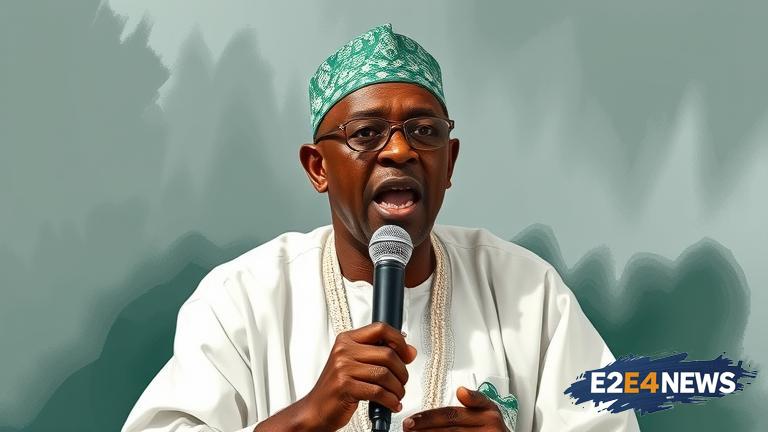The Minister of Interior, Rauf Aregbesola, has expressed concerns over Nigeria’s financial situation, stating that the country can no longer rely on federal allocation for sustenance. This statement comes as a wake-up call to Nigerians, emphasizing the need for alternative sources of revenue. Aregbesola’s comments were made during a recent event, where he emphasized the importance of self-sufficiency and financial independence. He noted that the current system, where states rely heavily on federal allocation, is no longer tenable. The minister’s words are a reflection of the country’s economic struggles, which have been exacerbated by the COVID-19 pandemic and other global factors. Nigeria’s economy has been largely dependent on oil exports, which has made it vulnerable to fluctuations in the global market. The country’s financial woes have been further compounded by corruption, mismanagement, and a lack of investment in key sectors. Aregbesola’s statement is a call to action, urging Nigerians to explore alternative sources of revenue and to diversify the economy. He emphasized the need for states to develop their own revenue streams, rather than relying solely on federal allocation. This approach, he believes, will help to reduce the country’s financial burden and promote economic growth. The minister’s comments have sparked a debate about the need for fiscal federalism, where states have more control over their financial resources. Proponents of this approach argue that it will promote economic development and reduce the country’s reliance on federal allocation. However, others have raised concerns about the potential risks and challenges associated with this approach. Despite these concerns, Aregbesola’s statement has highlighted the need for urgent action to address Nigeria’s financial struggles. The country must explore new revenue streams, invest in key sectors, and promote economic diversification to reduce its reliance on federal allocation. Furthermore, the government must also address the issue of corruption and mismanagement, which has been a major obstacle to economic growth. In addition, the country must invest in human capital, infrastructure, and technology to promote economic development. The minister’s statement has also sparked a discussion about the role of state governments in promoting economic growth. State governments, he believes, must take a more active role in developing their own revenue streams and promoting economic development. This approach, he argues, will help to reduce the country’s financial burden and promote economic growth. Overall, Aregbesola’s statement has highlighted the need for urgent action to address Nigeria’s financial struggles and to promote economic growth. The country must explore new revenue streams, invest in key sectors, and promote economic diversification to reduce its reliance on federal allocation.
